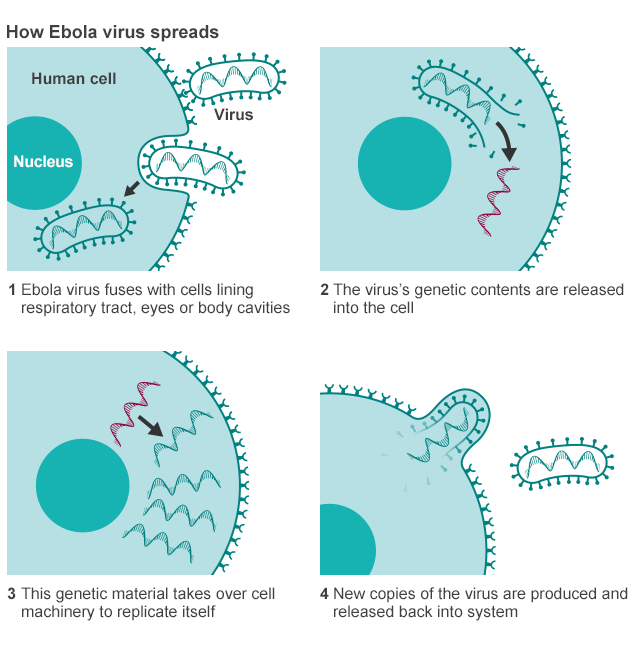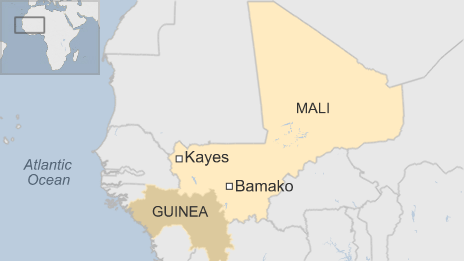The first case of Ebola has been confirmed in Mali.
The government of Mali said a two-year-old girl had tested positive for the haemorrhagic virus. She recently returned from a visit to neighbouring Guinea.
More than 4,800 people have died of Ebola – mainly in Liberia, Guinea and Sierra Leone – since March.
Meanwhile, an international team of scientists has been set up to determine the effectiveness of using the blood of Ebola survivors as a treatment.
It is hoped the antibodies used by the immune system to fight Ebola can be transferred from a survivor to a patient. The study will start in Guinea.

Porous borders
Speaking on state television on Thursday, Malian Health Minister Ousmane Kone said the infected girl was being treated in the western town of Kayes.
She was brought to a local hospital on Wednesday and her blood sample was Ebola-positive, Mr Kone said.
The child and those who have come into contact with her have been put in quarantine.
The girl’s mother died in Guinea a few weeks ago and the child was then brought by relatives to Mali, Reuters news agency quotes a health ministry official as saying.
Mali is now the sixth West African country to be affected by the latest Ebola outbreak – however Senegal and Nigeria have since been declared virus-free by the WHO.
With porous borders, countries neighbouring Guinea, Sierra Leone and Liberia are on high alert for possible imported cases of the virus, says BBC regional correspondent Anne Soy.
Separately, the World Health Organization (WHO) has already identified at least two experimental vaccines which it believes could be promising.
At a meeting in Geneva, the UN health body said it wanted tests of the vaccines to be completed by the end of December.
The WHO says 443 health workers have contracted Ebola, of whom 244 have died.










